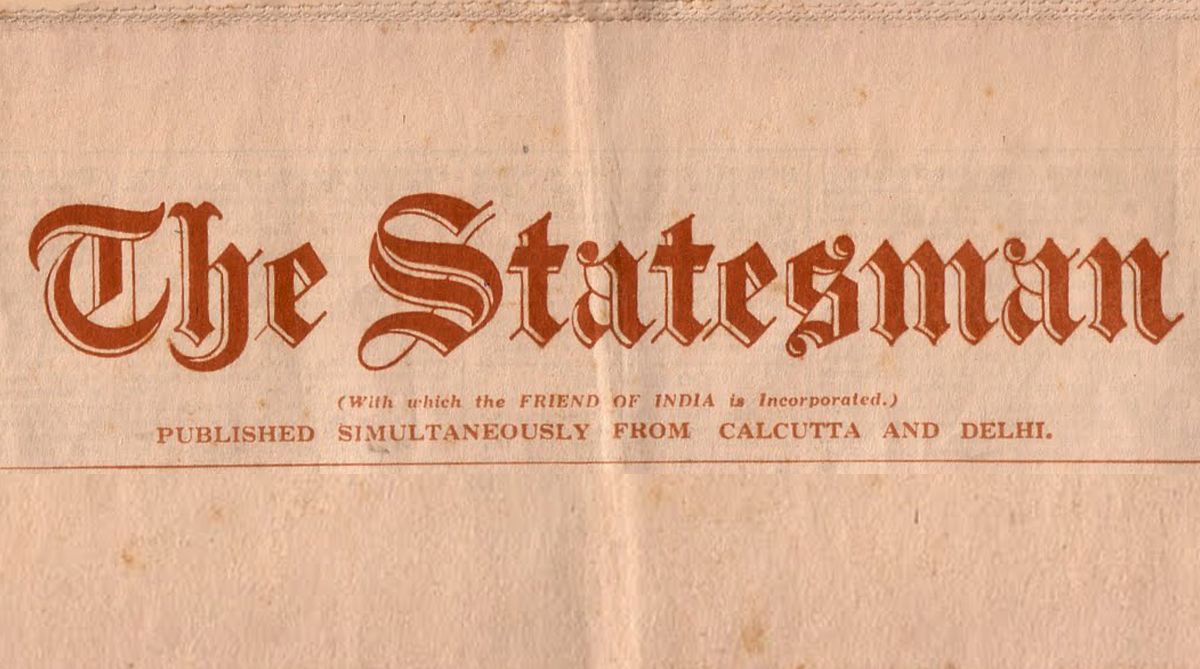A New Day, A New Dawn
There is a surprise for the readers. A special Poila Boishakh gift from none other than West Bengal chief minister Mamata Banerjee. Who has written a piece for this special edition.
On this day a century ago, these were some of the news items The Statesman readers got to read about India and the world.

ROADS IN THE SOUTH TERAI
To The Editor Of The Statesman
SIR, – Will you kindly publish these few lines in the hope that we may get the very necessary help from the Government to put our roads in order? The roads in question are so bad that it is almost impossible to get an empty car over them. What I wish to point out is that certain sums of money are spent every cold weather on these roads in throwing up earth on them, and that this is really a waste, as the mud is washed off with the first heavy rain we get.
Advertisement
What we ask for is that every year a portion of our roads be metalled, and I maintain that if the Deputy Commissioner took the trouble to visit our roads at the present time, he would also support our views. Instead of being a benefit to the public the roads when so repaired are a real trouble for such a thing as top dressing of roads is not known in the South Terai. It is high time we got something done to improve the road.
BUDHOO BROAN.
THE CASHING OF NOTES
To The Editor Of The Statesman
SIR, – It is a pity the attention of Government is not drawn to the difficulties Indians find in cashing notes. The fact is that the baniyas as a rule will not take notes at full value in many places, although they are legal tender. This is aggravated by the fact that some shopkeepers when receiving a money order from an Indian at a distance deduct one per cent from the amount credited to the sender owing to the fact that the money order is almost always paid in notes. The fact is that notes are not easily cashable.
In Lucknow it was not possible to obtain from the treasury rupees for notes in full, nor from the banks. The money was probably there, or, if not, the condition was probably merely local. No educated and well-informed man doubts the ability of Government to cash its notes, but the majority of the population is uneducated and ill-informed, while many traders are only too ready to trade on the ignorance of their customers. It is time something were done.
KHAIRKHWAH.
DELHI IS YET FAR OFF
To The Editor Of The Statesman
SIR, – Mr. Marris’ pen in the report of Indian constitutional reforms reminds impatient politicians of the historical saying “Hanoz Delhi dor ast” (Delhi is yet far off). This Persian proverb, as the word “Delhi” denotes, is purely of Indian parentage. Golam Hossain Khan, in his great historical masterpiece, relates a very interesting history of its origin. The first Tughlak King – Ghiyas-uddin – after putting down rebellions of the Governors of Bengal and Tirhut, marched back to Delhi. He was very angry with Hazrut Nizam-uddin, otherwise known by the title of “Olia” i.e., saint.
The sultan sent him an order to quit Delhi as soon as he entered. The saint replied in the four-worded historical sentence. Ghiyas-uddin never reached Delhi proper as he was killed by the fall of the terrace of the room at Tughlakabad where he was feasting. “Since then these words got currency among the Indians” says the historian. (See Seerul-Mutakhrin vol. 1, page 147, Asiatic Society edition).
GOLAM MOWLA.
The Madrassa, Patna City.
Advertisement